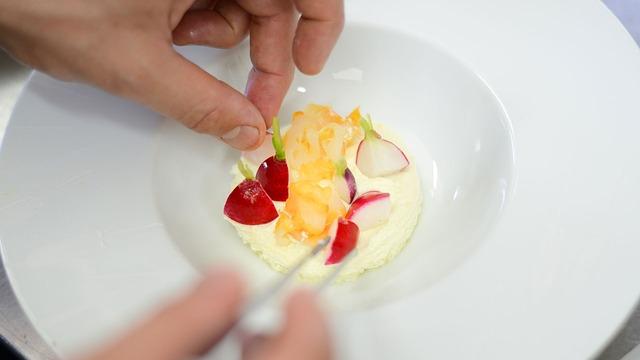Tanzania is set to become the focal point of global tourism discussions as it prepares to host the United Nations Tourism Forum on Gastronomy, organized in collaboration with the African Travel and Tourism Association. This groundbreaking event aims to highlight the crucial role of gastronomy in promoting sustainable tourism and cultural heritage. Scheduled for later this year in the vibrant city of Dar es Salaam, the forum will bring together industry leaders, culinary experts, and policymakers from around the world to exchange insights and explore innovative strategies for leveraging local cuisine as a catalyst for travel and economic advancement. As Tanzania showcases its rich culinary diversity, this gathering underscores the importance of food in enriching travel experiences and fostering cross-cultural connections.
Tanzania’s Role as a Culinary destination in Global Tourism
Tanzania is rapidly emerging as a notable player in the global culinary tourism scene, showcasing a unique blend of indigenous flavors and diverse culinary traditions influenced by its rich history. the country boasts a variety of ingredients and culinary practices that reflect its cultural tapestry, making it a magnet for food enthusiasts and travelers. Visitors can explore vibrant local markets, savor dishes such as Ugali and Zanzibar’s Spice Cake, and experience authentic culinary workshops where they can learn the art of traditional cooking. The UN Tourism Forum on Gastronomy, to be hosted in Tanzania, will further emphasize the importance of food as a vital component of travel, highlighting the nation‚Äôs potential to become a gastronomic hub in Africa.
As Tanzania embraces its role in culinary tourism, several initiatives are being put in place to enhance the gastronomic experience for tourists. Local chefs are collaborating with farmers to promote the farm-to-table movement, ensuring that the offerings at restaurants and street food stalls are not only flavorful but also sustainable. In addition, culinary festivals celebrating the wide range of Tanzania’s flavors and rich agricultural heritage are gaining popularity, attracting both locals and tourists alike.Below is a snapshot of key elements that define Tanzania’s culinary landscape:
| Culinary Element | Description |
|---|---|
| traditional Dishes | Signature meals that reflect local culture,such as Nyama Choma and Samaki Wa Kupaka. |
| Spices | Zanzibar’s notoriety for spices, including cloves, nutmeg, and cardamom, impacting regional cuisine. |
| Culinary Events | Festivals and events that celebrate Tanzanian food, increasing awareness and attracting visitors. |
| Local Ingredients | Utilization of fresh, locally-sourced ingredients that enhance authenticity and flavour in dishes. |

Exploring the Impact of Gastronomy on Sustainable Travel in Africa
The upcoming UN Tourism Forum in Tanzania will focus on how local gastronomy can transform travel experiences and promote sustainability across the African continent.As travelers increasingly seek authentic experiences, regional cuisines become vital to understanding culture and fostering relationships between visitors and locals. Sustainable gastronomy not only highlights local ingredients and traditions but also encourages environmentally pleasant practices such as supporting small-scale farmers and reducing food waste. By embracing culinary traditions, destinations can enhance their appeal while ensuring that tourism benefits local communities and ecosystems.
Moreover, the integration of gastronomy into tourism strategies can create a unique identity for African nations and encourage the preservation of culinary heritage. Destinations can capitalize on the rich diversity of flavors, dish presentations, and cooking methods by promoting food festivals, culinary tours, and farm-to-table experiences. This approach can foster economic growth and sustainable development, demonstrating that food tourism is not just about consumption but also about cultural exchange and environmental responsibility. Here are some key areas where gastronomy impacts sustainable travel in Africa:
- Promotion of Local Agriculture: Encourages the consumption of seasonal and locally sourced ingredients.
- Community engagement: Involves local chefs and families in tourism initiatives, enriching visitor experiences.
- Waste Reduction: Utilizes leftovers and promotes sustainable fishing and farming practices.
- Cultural Preservation: Helps to retain traditional cooking methods and local food customs.

Showcasing Local Flavors: How the Forum Will Highlight Tanzanian cuisine
The upcoming UN tourism Forum on Gastronomy will serve as a vibrant platform to celebrate and elevate Tanzanian cuisine, showcasing its rich tapestry of flavors, traditions, and culinary practices. Attendees can look forward to experiencing a variety of local dishes that reflect the diverse cultures and regions of Tanzania. From the aromatic spices of the coast to the hearty stews of the inland areas, the forum will offer a sensory journey that emphasizes the following:
- Street Food Extravaganza: Local vendors will display traditional snacks and dishes, such as samosas and kebabs, providing a taste of everyday life in Tanzania.
- Interactive Cooking Demonstrations: Professional chefs will conduct live cooking sessions, allowing participants to learn about the readiness of iconic dishes like ugali and biryani.
- Panel Discussions: Experts in gastronomy and culture will engage in discussions about the significance of food in Tanzanian identity and its role in promoting sustainable tourism.
Additionally, the forum will feature a dedicated space for gastronomic education, where local farmers and producers will share insights into sustainable practices and the importance of sourcing ingredients locally.A visual portrayal of the culinary diversity will also be showcased thru the following:
| Cuisine Style | Signature Dish | Main Ingredient |
|---|---|---|
| Coastal | Fish Curry | Fish |
| Highland | Pilau | Rice |
| Indigenous | Nyama Choma | Grilled Meat |
This event is not just about food; it’s an opportunity to promote Tanzania as a premier gastronomic destination, encouraging the appreciation of local flavors while fostering connections amongst tourists, locals, and culinary experts.

Engaging Local Communities: benefits of Gastronomy Tourism
Gastronomy tourism serves as a powerful catalyst for engaging local communities by fostering economic growth and cultural exchange. When travelers immerse themselves in the culinary offerings of a destination, they not only savor unique flavors but also contribute directly to the livelihoods of local producers, chefs, and artisans. This influx of tourism can lead to the preservation of traditional cooking methods and indigenous ingredients, ensuring that cultural heritage is honored and passed down through generations. Local farmers and craftspeople gain a platform to showcase their products, creating a sustainable ecosystem that benefits everyone involved.
Moreover, the interaction between visitors and local residents enhances mutual understanding and appreciation of diverse cultures. Culinary experiences often include workshops, cooking classes, and food festivals that encourage tourists to participate actively in the community. Through these interactions, travelers gain insights into daily life, customs, and traditions, fostering a sense of respect and shared humanity. As an inevitable result,gastronomy tourism not only invigorates local economies but also strengthens community bonds and promotes cultural pride.
| Benefits of Gastronomy Tourism | Impacts on Local Communities |
|---|---|
| economic Growth | Increased income for local businesses and artisans |
| Cultural Preservation | Revival of traditional recipes and cooking techniques |
| Community Engagement | Opportunities for locals to share their stories and skills |
| Environmental Sustainability | support for local farmers and sustainable practices |

Strategic Partnerships: Collaborating for a Flourishing Culinary Tourism Sector
To harness the full potential of gastronomic tourism, strategic partnerships must become a cornerstone of the industry’s growth. Collaboration between local governments, culinary schools, tour operators, and food producers can create a cohesive framework that highlights Tanzania‚Äôs unique culinary offerings. Emphasizing local ingredients and traditional recipes will not only enhance the visitor experience but also support sustainable practices. Engaging stakeholders through initiatives, such as collaborative marketing campaigns and shared events, can result in greater visibility for Tanzania‚Äôs vibrant food scene.
Moreover, international partnerships with renowned chefs and culinary influencers can enrich the country’s culinary narrative. These collaborations can facilitate knowledge exchange, innovation in cuisine, and elevate Tanzania‚Äôs gastronomic profile on a global stage. Key strategies for success include:
- Joint culinary festivals showcasing local cuisine.
- Collaborative training programs for chefs and hospitality staff.
- Partnerships with local farmers to promote farm-to-table dining experiences.
- Engagement with tourism boards to integrate gastronomy into travel itineraries.
By fostering these alliances, tanzania can cultivate a flourishing culinary tourism sector that reflects its rich cultural heritage.

Recommendations for Maximizing the Forum’s Impact on Tourism Growth
To fully leverage the upcoming UN Tourism forum on Gastronomy,stakeholders must focus on strategic collaborations and local community engagement. Partnerships with local businesses and international culinary experts can foster an exchange of ideas that will enrich the forum’s program. Additionally, promoting cooperative marketing initiatives will enhance the visibility of Tanzania‚Äôs unique culinary offerings, attracting a diverse audience. Key recommendations include:
- Organizing pre-forum workshops that focus on sustainable culinary practices.
- Creating interactive platforms for chefs and food entrepreneurs to showcase their innovations.
- Encouraging the participation of local farmers to highlight farm-to-table experiences.
Moreover, integrating technology into the tourism growth strategy will broaden the forum’s reach and impact. By leveraging social media campaigns and virtual reality experiences, attendees can engage with Tanzania’s gastronomic landscape even before they arrive. It is also essential to evaluate and measure the results post-forum to ensure continuous enhancement for future events. A basic overview of strategies could be organized as follows:
| strategy | Expected Outcome |
|---|---|
| Local & International Partnerships | Increased exposure and sharing of best practices |
| Community Engagement Programs | Stronger local support and sustainable practices |
| Technological Initiatives | Expanded audience reach and interactive participation |

Key Takeaways
Tanzania‚Äôs upcoming hosting of the UN tourism Forum on Gastronomy marks a significant milestone for the country and the African travel industry as a whole.This event not only showcases Tanzania‚Äôs rich culinary heritage but also underscores the potential of gastronomy as a key driver of sustainable tourism development. by bringing together stakeholders from across the globe,the forum aims to foster innovative practices,share best experiences,and promote intercultural dialogue centered around food and tourism. As the nation prepares to welcome delegates and experts, it stands poised to elevate its profile on the international stage and inspire a new era of culinary tourism that can benefit local communities and economies alike. Observers will be keen to see how this event further solidifies Tanzania’s role as a leading player in Africa’s tourism landscape and sets a precedent for future initiatives across the continent.







